
- Subject:
- Arts and Humanities
- Material Type:
- Lesson Plan
- Author:
- Skyler Smyres
- Tamara Crow
- Date Added:
- 01/15/2018

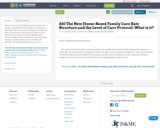
The Level of Care (LOC) Matrix protocol updates the decades-old method of determining a rate based on a child’s age. The new protocol is designed to match the daily care and supervision needs of a child or youth based on level of intensity and the abilities of the resource family; which translates to a rate. Come hear the basics; updates and how some counties and providers are implementing the new protocol.

A parent partner’s greatest strength is their experience of pain and struggle, which makes their story so valuable. This workshop will introduce you to the elements of effective storytelling. Each of us has a compelling story to share that can motivate others. Learn to tell it with the ability to inspire.
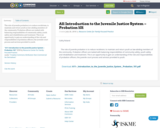
The role of juvenile probation is to reduce recidivism; to maintain and return youth as law-abiding members of the community. Probation officers are tasked with balancing responsibilities of community safety; youth safety and rehabilitation and treatment. This is an opportunity to gain an understanding of the role and responsibilities of probation officers; the juvenile court process and services provided to youth.
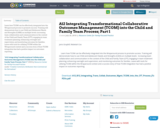
Learn how TCOM can be effectively integrated into the Wraparound process to promote success. Training will demonstrate how to use Child and Adolescent Needs and Strengths (CANS) on multiple levels: increasing team collaboration and communication in the context of the Child and Family Team (CFT); engaging in team treatment planning; enhancing oversight and supervision; and monitoring outcomes for families. Leave with tools for utilizing TCOM within the Wraparound context and a success story of how TCOM integration has had a positive impact on outcomes reporting.

Sex is fundamental to human existence. Since most of us wouldn’t exist without sex, it seems natural that sex is regularly on our minds. However, society sends us very mixed messages on this topic.
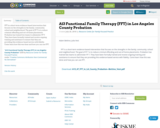
FFT is a short-term evidence-based intervention that focuses on the strengths in the family; community; school and neighborhood. The goal of FF T is to reduce criminal offending and out-of-home placements. Probation has trained two teams to administer FF T. They have been formally trained and receive ongoing training and assistance to ensure that they are providing this evidence-based service with fidelity. Come learn how this was done and how you can use FFT.

This workshop is designed for anyone who deals with Commercially Sexually Exploited Children (CSEC) victims and their families.
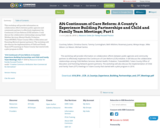
This workshop will provide information on collaboration efforts between public agencies and community partners to effectively implement the Continuum of Care Reform (CCR) initiative. It will discuss the collaborative relationships among Child Welfare Services; Mental Health; Probation; TulareWORKS; Tulare County Office of Education and Parenting Network (parent partners). The workshop will also discuss the implementation of Child and Family Team (CFT) meetings in Tulare County that started with a pilot program in 2016.
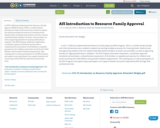
In 2017; California implemented the Resource Family Approval (RFA) Program. RFA is a unified; family friendly and child-centered process created to replace the existing multiple processes for licensing foster family homes and approving relatives and non-relative extended family members as foster-care providers; as well as approving families for legal guardianship or adoption. The RFA Program eliminates duplication; coordinates approval standards and provides a comprehensive assessment of all families; to expedite permanency for children and youth served by the Child Welfare and Juvenile Probation Departments. This training aims to orient participants to the RFA Program and explore ways participants can support families and youth impacted by RFA through their professional roles.

This workshop will provide an overview of the foundation of a 06 Mental Health and Wraparound System of Care, highlighting main components to implementation and sustainability.

The role of juvenile probation is to reduce recidivism and to maintain and return youth as law abiding members to the community. Probation officers are tasked with balancing the responsibilities of community safety, youth safety and rehabilitation and tre

As the healthcare system evolves to meet the changing demands of an increasingly diverse nation; creating an equally prepared system of services that address these needs has become a top priority for all service providers. Dr. Isaiah Pickens will discuss the challenges for families of navigating within and across systems and the promise of integrating a relationship-based framework to meet their needs; while providing evidence-based care. This keynote address will inspire service providers to use relationships for building resilience in both their clients and themselves.

This is a lab manual for Basic Human Anatomy.

Effective July 1; 2017; when a child or youth in foster care is placed outside his or her county of jurisdiction; the responsibility to provide; arrange and pay for specialty mental health services changes. Presumptive transfer sounds like a complicated government administrative process because it is. This workshop will provide an explanation of what this process is; who is affected by it and how it can be managed effectively.


This workshop will focus on attachment concepts and how teams can use them in the Wraparound process.
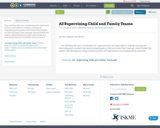
This workshop will cover considerations for supervisors who are responsible for training; coaching and supervising team members that attend and participate in Child and Family Team meetings. Several models that support staff development; family-centered practice; and organizational accountability will be presented.
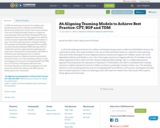
In 2018; the landscape of services for children and families being served in California Child Welfare Services has continued to evolve. One recent evolution is the use of Child and Family Teams as a vehicle for team planning. Child and Family Teaming (CFT) must integrate practices; services and supports for children; youth; non-minor dependents (NM Ds) and families in care. Two of the major practices to integrate with the CFT mandate include Safety Organized Practice (SOP) and Team Decision-Making (TDM) meetings. SOP is a collaborative practice approach that emphasizes the importance of teamwork in child welfare; and TDM is a facilitated team meeting structure to address placement issues for children involved or potentially involved in foster care. This workshop will focus on the promising practices and art of integrating SOP and TDM into a CFT process. Participants will leave with increased capacity to create one teaming process that meets the needs of the child; youth; NM D; parent; family agency and community.
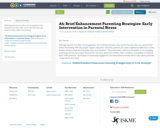
Although parents are often not recognized in the treatment process, they can be the ones who can improve their child’s functioning.